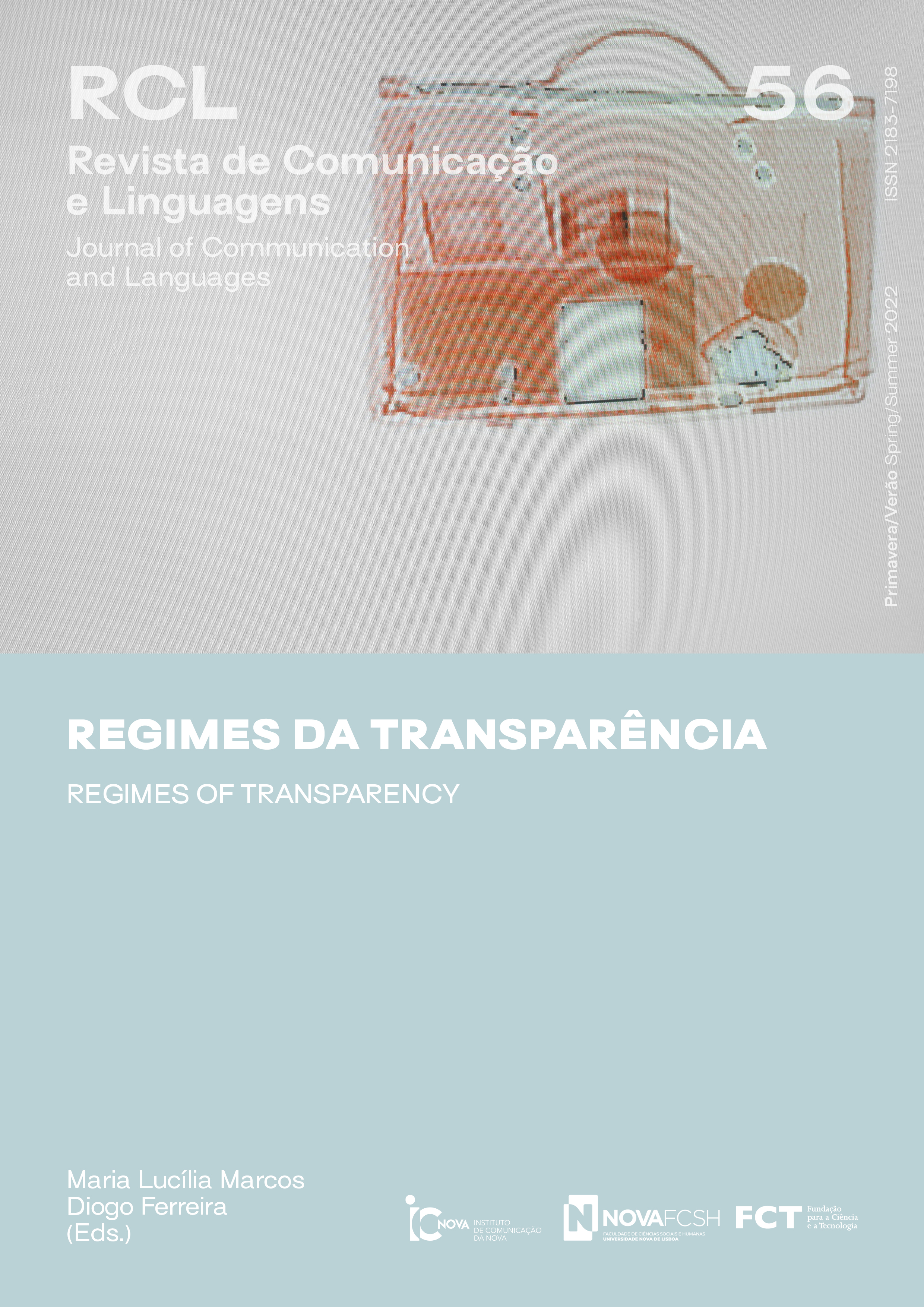Regimes of Transparency
Abstract
With this thematic issue of RCL, we wish to reflect on the ontological, aesthetic, ethical and political consequences of the rise of the “regimes of transparency”. This means that we will consider a specific constellation of apparatuses and subjectivities that in present times is structured around the concept of “transparency” — not as a mere “ideal” to be realized via historical progress, but as a concrete and ordered experience of the visible, that imposes itself in many different ways on individuals and collectivities. It is a relevant subject for communication and media studies, since the transparent may assume the forms of the public and the immediate, of that which “appears” apparently free of the negativity of secrecy or mediation — thus, one can understand those that denounce the “ideological form” of transparency (Clare Birchall) or the threat of an “inferno of the same” (Byung-Chul Han)that seems to loom over this concept. In the (supposed) aftermath of a global pandemic that both legitimized and intensified the development of new laws, techniques and practices of visibility, there is an urgent need for a critical
consideration of the politics of transparency, its persistent opacities, and the ways of seeing that it reproduces.



